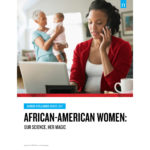By DEBRA ERDLEY
Pittsburgh Tribune-Review
INDIANA, Pa. (AP) _ James Begany saw opportunity in the high school students other colleges weren’t courting.
As Indiana University of Pennsylvania’s vice president of enrollment, he knew black and Hispanic students from eastern Pennsylvania flourished at the public university in Pennsylvania’s coal country. And he knew that minorities would outnumber whites among elementary and secondary students for the first time this year.
IUP needed to step up its game to fill desks and dorm rooms. High school graduates in Western Pennsylvania declined by about 9 percent during the past decade, a rate that is expected to continue.
So, the school added a Hispanic recruiter. And to help low-income students from eastern Pennsylvania get to Indiana in July for registration, IUP chartered three buses that brought 63 students, each with a parent, to campus.
“It’s a different world out there,” Begany said.
Although elite colleges and research universities turn away applicants, many colleges have had to boost recruitment efforts, said Michael Reilly, executive director of the American Association of College Registrars and Admissions Officers. For 17 years, the size of high school graduating classes has grown just 2.5 percent.
Preliminary numbers suggest Indiana’s targeted outreach to minorities helped boost freshman enrollment by about 3.4 percent to 2,834 students this fall.
In Pittsburgh, Point Park University took a different route to success. The small, private school known for its performing arts, communications and business programs began mining data last fall for high school students whose profiles matched its most successful students.
Personal follow-ups with them and an emphasis on Point Park’s identity as a “Downtown school” yielded an 11.5 percent increase in freshman enrollment for a record class of 601.
“It’s just a lot of data-driven hard work,” said Gray Bracken, vice president of enrollment management at the school, which had 3,840 students last year.
“This use of data is important,” Reilly said of Point Park’s recruitment strategy. “One of the things colleges have not done is to make full use of all the information on students whose test scores they buy.”
In Pennsylvania, more than 100 public and private colleges and universities vie for students. Any edge can be important.
IUP recruiters Shawn T. Jones, who is black, and Irvin Rivera, a Lancaster native hired this year, will continue to target students such as IUP seniors Christlynn Dornevil and Gabriel Del Valle.
Dornevil and Del Valle, both 21, grew up in Philadelphia. Dornevil’s parents came from Haiti; Del Valle’s mother is from Puerto Rico, and his father spent much of his life working on farms in Texas and Mexico.
Del Valle, who spoke only Spanish until kindergarten, will graduate in December after 31/2 years and is prepping for graduate school entrance exams. Dornevil, who was in a vo-tech high school, carries a 3.8 grade point average and wants to attend law school.
They helped establish IUP’s Multi-Cultural Student Recruitment and Retention Organization to support freshmen, many of whom are first-generation college students.
Del Valle empathizes with Hispanic students who may be homesick, noting, “Family is so important to us.”
Dornevil talks about overcoming fears in a new place: “I haven’t experienced racism here, but when you walk outside in Philadelphia, you see people who look like you 24/7. The first week (here), it was different.”
Success is more than just bringing black or brown faces to campus; it’s also retaining them, IUP officials said.
“You have to build a community that recognizes these kids and can provide mentoring and support students when they need it,” Jones said.
___
Online:
With fewer grads in W.Pa, colleges forced to get creative with recruiting
___
Information from: Pittsburgh Tribune-Review, http://pghtrib.com











